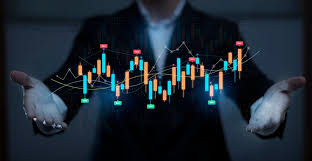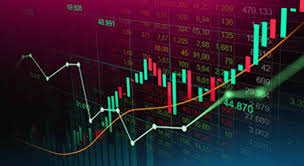- No Products In The Cart
- start shopping
Mastering Forex Trading Online Strategies and Insights

The realm of forex trading online exbroker-turkiye.com has rapidly evolved over the years, providing a unique opportunity for both novice and experienced traders to engage in dynamic currency exchange. As the largest and most liquid financial market in the world, the Forex market boasts an average daily turnover exceeding $6 trillion. This article aims to unravel the complexities of online Forex trading, providing insightful strategies that can lead to successful trading outcomes.
Understanding Forex Trading
Forex trading involves the buying and selling of currency pairs, where one currency is exchanged for another. Every currency pair consists of the base currency and the quote currency. For example, in the currency pair EUR/USD, the Euro is the base currency, and the US Dollar is the quote currency. The value of the currency pair fluctuates based on economic indicators, geopolitical stability, interest rates, and market sentiment.
Getting Started with Forex Trading Online
To step into the world of online Forex trading, you’ll need to follow several essential steps:
- Choose a Reliable Forex Broker: Conduct thorough research to find a reputable broker that offers a trading platform suitable for your needs.
- Create a Trading Account: After selecting a broker, create an account. Many brokers provide demo accounts that allow you to practice trading without any financial risk.
- Learn Trading Terminology: Familiarize yourself with key terms like pips, spreads, leverage, and margin.
- Choose a Trading Strategy: Identify a trading style that suits your personality and risk tolerance, such as swing trading, day trading, or scalping.
Essential Forex Trading Strategies
Implementing effective strategies is crucial for success in Forex trading. Here are some popular strategies that traders often use:

1. Technical Analysis
Technical analysis involves using historical price charts and indicators to predict future price movements. Traders analyze patterns, trends, and various indicators like Moving Averages, Bollinger Bands, and Fibonacci retracement levels to make informed decisions.
2. Fundamental Analysis
Fundamental analysis looks at economic indicators, news events, and geopolitical factors that can influence currency valuation. Traders often focus on reports such as GDP growth rates, employment data, and interest rate decisions by central banks.
3. Price Action Trading
This strategy emphasizes understanding market movement based on price history without relying on indicators. Traders look for specific price patterns to gauge market sentiment and make trades accordingly.
The Importance of Risk Management
One of the most critical aspects of Forex trading is risk management. Successful traders often adhere to strict risk management rules to protect their capital. Here are some vital risk management strategies:
1. Use Stop-Loss Orders
Placing stop-loss orders allows traders to limit potential losses by automatically closing a position when the market reaches a specified price.

2. Diversify Your Portfolio
Don’t put all your capital into one trade or currency pair. Diversifying your portfolio can help spread risk across different assets.
3. Manage Leverage Wisely
Leverage can amplify your profits but also your losses. It’s crucial to use leverage judiciously and never risk more than you can afford to lose.
Utilizing Trading Tools and Platforms
Many traders rely on advanced trading platforms and tools to enhance their trading experience. Some commonly used tools include:
- Charting Software: Programs that allow traders to visualize market trends and patterns.
- Economic Calendars: Tools that provide information on upcoming economic events that may impact currency prices.
- Automated Trading Systems: Software that executes trades based on predetermined criteria without human intervention.
Keeping Emotions in Check
Trading can be an emotional rollercoaster filled with highs and lows. It’s essential to keep emotions in check to avoid making impulsive decisions. Discipline, patience, and a well-defined trading plan can help traders stay focused and resilient.
Continuous Learning and Adaptation
The Forex market is ever-changing, influenced by various global factors. Successful traders engage in continuous learning, adapting their strategies based on market conditions and evolving trends. Participating in webinars, reading trading blogs, and joining forums can enhance your knowledge and skill set.
Conclusion
Forex trading online offers immense potential for profit, but it comes with inherent risks. By understanding the market dynamics, developing effective strategies, implementing sound risk management practices, and maintaining emotional control, traders can navigate the complexities of Forex trading successfully. Remember that success doesn’t come overnight; patience and persistence are key in this fast-paced market.

